Can Dishwasher Be Hardwired? Let’s Get the Facts!
Your kitchen is more than a place to cook; it’s a hub of activity, and safety is paramount.
When considering the installation of your new dishwasher – perhaps a Bosch or any other brand – there’s more to think about than just convenience.
I know, grounding wires and codes can sound confusing. But don’t worry, I’ll help you understand them.
Together, we’ll make sure your kitchen is safe for cooking and gives you peace of mind.
Don’t worry, you don’t need to be an electrician to get the job done!
Can Dishwasher Be Hardwired?
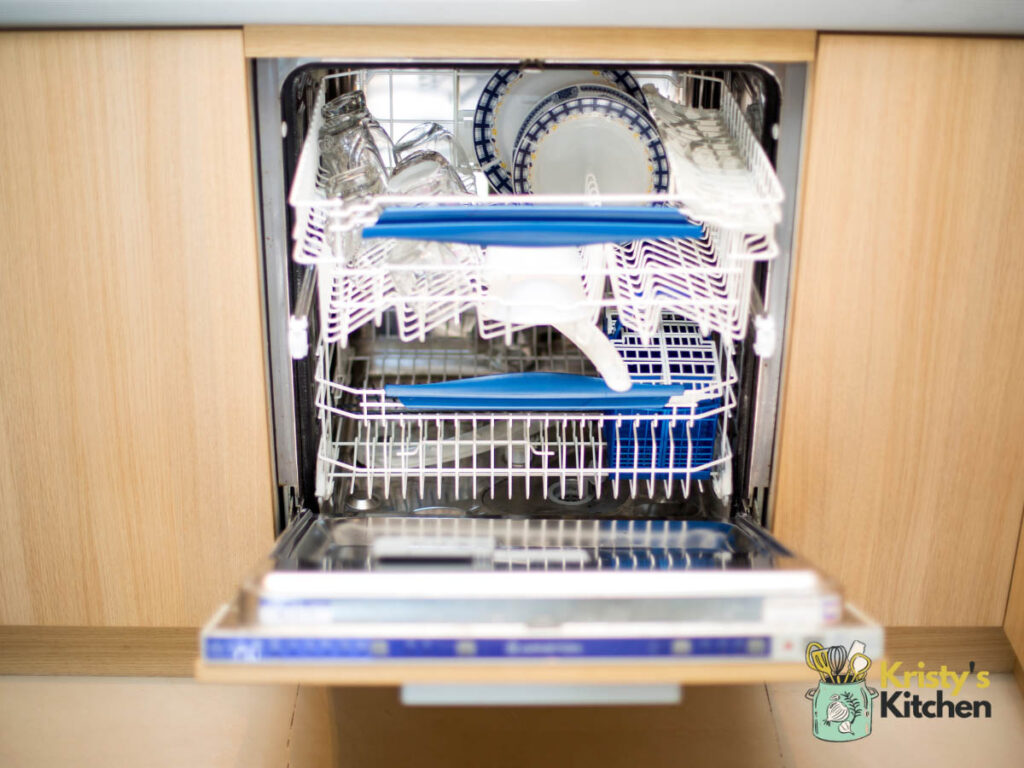
Yes, you can hardwire a dishwasher. Just turn off its circuit breaker, connect the wires securely, gently slide in the dishwasher, and make sure to secure the junction box lid. This ensures a safe installation process.
In the coming sections, I’ll explain everything in detail so keep on reading.
What Is The Code for Wiring a Dishwasher?

When it comes to setting up your dishwasher, there are rules to follow.
These rules are set by authorities to keep things safe.
They make sure your dishwasher is connected properly and doesn’t cause any problems.
Here’s what you need to know about these codes:
- Dedicated Circuit: Often, the code says your dishwasher should have its own electrical line. This way, it gets all the power it needs without sharing with other things, which keeps everything working well.
- GFCI Protection: Some codes ask for GFCI protection. Think of it as a safety feature that quickly turns off power if there’s any trouble. It’s especially important for places like kitchens where water is around.
- Location and Wiring: The codes might also tell you where to put outlets and boxes and how to use wires. They want everything to be safe and not hidden where you can’t reach it.
- Permits and Inspections: Depending on where you live, you might need permission (a permit) to set up your dishwasher. Some places also do mandatory inspections to make sure everything’s done right.
How to Hardwire A Dishwasher
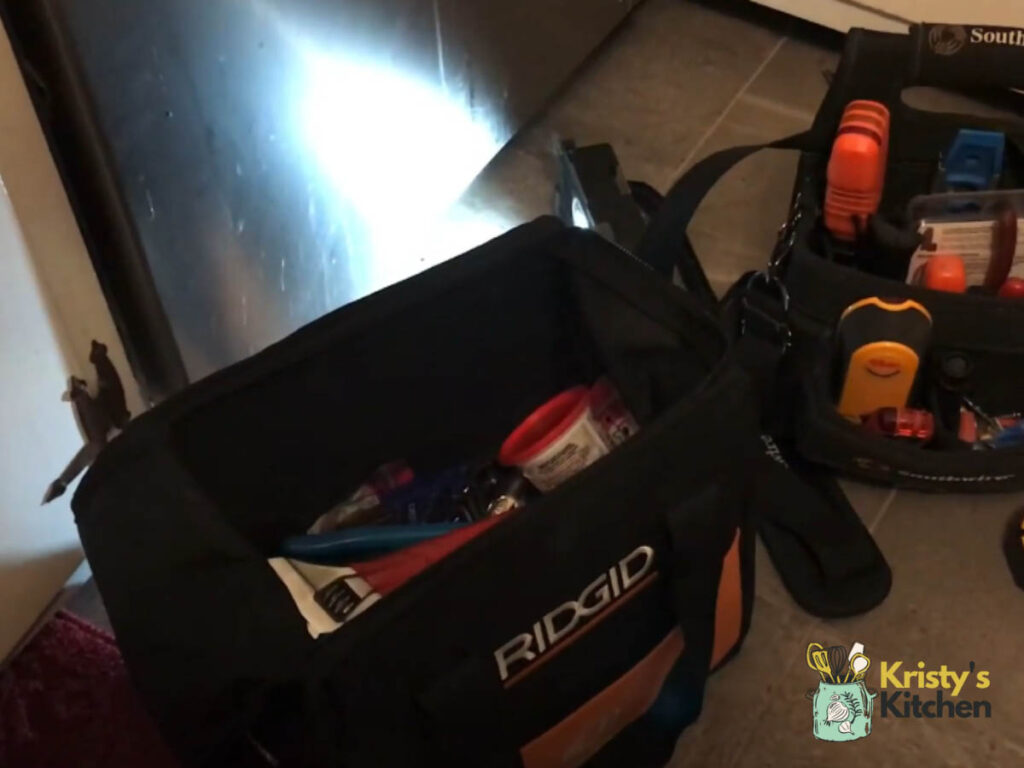
Hardwiring your dishwasher directly to your electrical system ensures enhanced safety and a clean aesthetic. Here’s how to go about it.
Things You’ll Need
You need to have these at hand:
- Junction box
- Electrical wires
- Circuit breaker
- Wire stripper
- Screwdriver
- Wire nuts
Now let’s move on to the hands-on part—connecting your dishwasher to the electrical system.
Don’t worry, it’s manageable if you follow these steps:
Step 1: Cut the Power
Start by locating the dishwasher’s circuit breaker on the electrical panel and switching it off.
This step is crucial to eliminate any risk of electric shock while handling the wires.
The breaker panel might be in the basement or a designated cabinet area.
Step 2: Create Wiring Access
Pick the right side of the cabinet where the dishwasher will sit, and drill a 3/4-inch hole.
Smooth out the hole’s edges using medium-grit sandpaper.
This hole will serve as the entry point for connecting the dishwasher’s wiring to the junction box.
Step 3: Set Up the Terminal Box
If there’s no terminal box behind the dishwasher, you’ll need to repurpose an existing outlet box.
The terminal box, complete with a protective lid, safeguards the wires from external elements, like water that might come from under the dishwasher.
Step 4: Remove Receptacle
Unscrew the outlet faceplate to remove it from the wall.
Take out the receptacle using a screwdriver and remove the wires by detaching the connecting screws.
This will leave you with a box in the wall containing protruding wires.
Step 5: Create a Dishwasher Circuit (If Necessary)
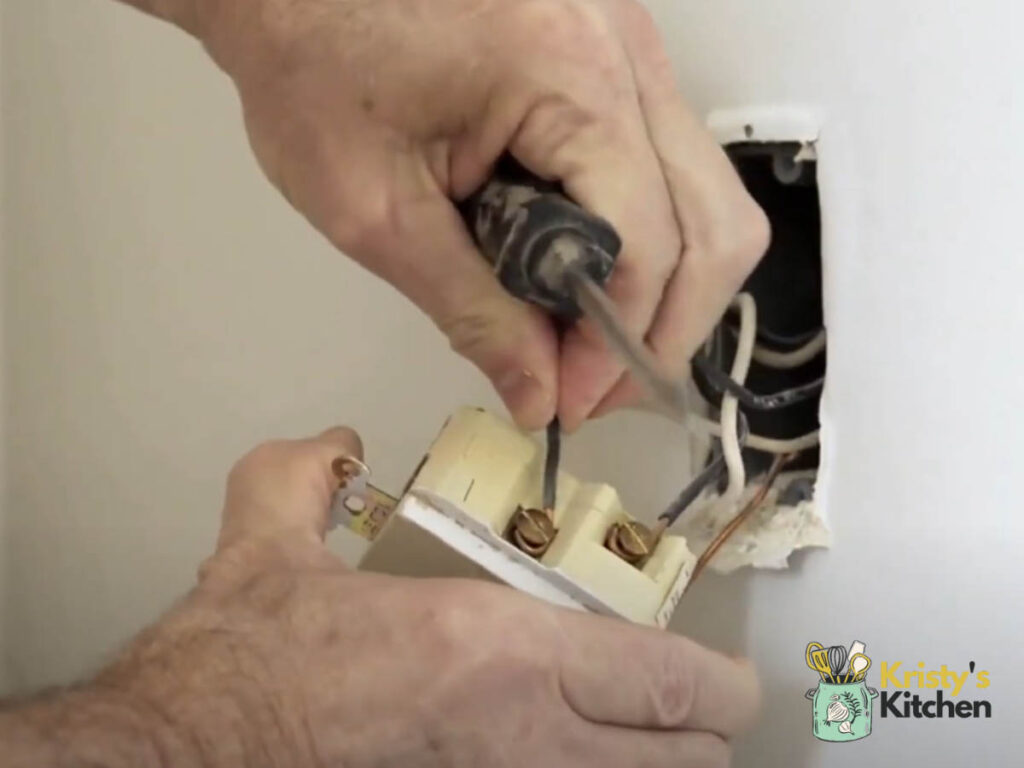
If there isn’t a dedicated dishwasher circuit, you’ll have to make one.
Run an electrical line from the circuit box behind the appliance through the wall.
Create a hole in the wall and securely attach a junction box to a stud.
Connect the dishwasher’s electrical wire to this box.
Step 6: Prepare for Wiring Connection
Spot the grommet at the box’s bottom. This will be the pathway for the electrical wires from both the wall and the dishwasher.
They’ll pass through here before forming a direct wiring connection at the terminal box.
Step 7: Add Insulation To The Splices
Use wire strippers to remove about an inch of insulation from the three wires inside both sets of cables.
Join the respective positive, negative, and ground wires from the cables, ensuring secure connections.
Cover each splice with proper wire insulation. Seek expert advice if you’re uncertain about this step.
Step 8: Place the Dishwasher And Secure The Junction Box
Gently slide the dishwasher partially into the cabinet, being careful not to strain the existing wires.
Neatly tuck the connected wires into the junction box. Close the junction box cover, ensuring that all wires are safely contained.
Use the provided screws to firmly put its lid in place.
Advantages Of A Hardwired Dishwasher
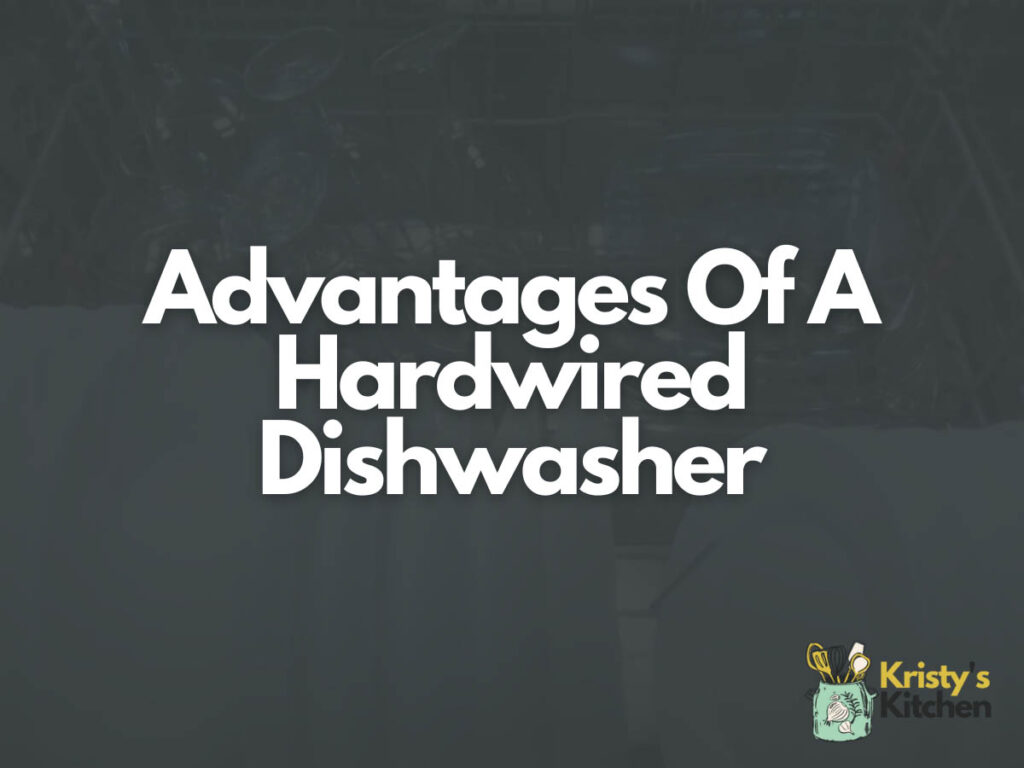
Choosing to hardwire your dishwasher comes with some pretty sweet perks:
- Safety First: With no cords lying around, the risk of tripping goes down by a lot.
- Playing by the Book: Hardwiring ticks the compliance box, making sure your setup aligns with electrical codes and regulations.
- Sleek and Clean: Say goodbye to visible cords dangling around – a hardwired setup keeps your kitchen looking tidy.
- No Unplanned Breaks: Unlike plug-in models, hardwired dishwashers won’t suddenly lose power due to accidental unplugging.
Disadvantages Of A Hardwired Dishwasher
But, as with anything, there are a few things to consider:
- More Hands-on: Hardwiring requires a bit more know-how and effort compared to plug-and-play setups.
- Fixed in Place: Once it’s set, moving your dishwasher isn’t as simple as with plug-in models.
- Pro Help Might Be Needed: If you’re new to DIY, there’s a fair chance you’ll require a technician’s expertise at some point, which could be a potential hassle.
How Much Does It Cost To Hardwire A Dishwasher?
The cost of hiring a professional to hardwire a dishwasher can range from $150 to $500, factoring in labor, materials, and location.
However, if you’re comfortable with DIY projects, hardwiring can be nearly cost-free if you have the required tools and skill- you’d only need to pay for the wires.
How To Convert A Plug-in Dishwasher To Hardwired?
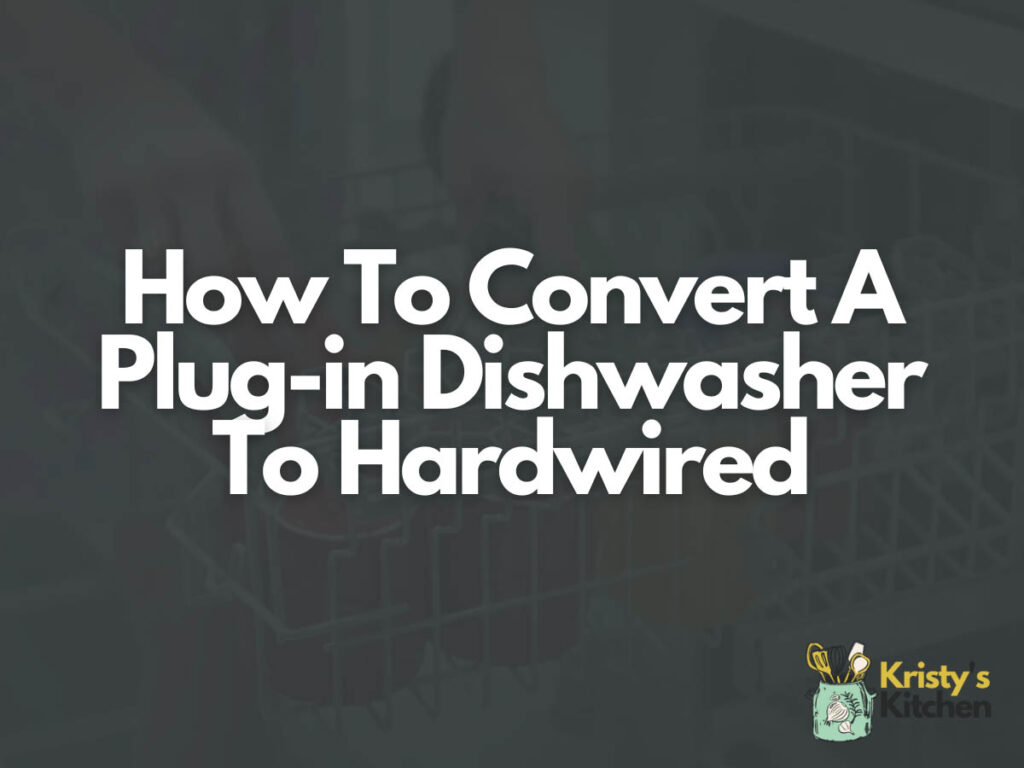
Okay, if you’re thinking about switching your plug-in dishwasher to a hardwired setup, you mostly need to follow the steps we’ve gone through earlier.
However, let me reiterate some of the more important things you need to do:
- Check if your dishwasher has a special box for hardwiring. If it does, you’re in luck.
- If it’s currently plugged into a regular outlet, switch that outlet to a special box for hardwiring.
- Take a look at its power setup – if your dishwasher already has its own electric line, you might be good to go. If not, you might need to set up a new line just for the dishwasher.
FAQs
Does a dishwasher have to be GFCI protected if hard wired?
Yep, even if your dishwasher is hardwired, you might still need GFCI protection. It depends on your area’s rules, so be sure to check them out.
Are bosch dishwashers hardwired or plug in?
Bosch dishwashers can work either way – you can plug them in or hardwire them.
Can all dishwashers be hardwired?
Not all dishwashers can be hardwired. Some are made for it, but some need to be plugged in. Just read the manual and think about your place.
Is it better to hardwire or plug in dishwasher?
It depends on what you like and what’s easier for you. Hardwiring looks cleaner, but plugging in gives you more options to change things.
Final Thoughts
So, that’s the scoop on dishwashers and hardwiring!
Now you’re all set to make the call that fits your kitchen vibe just right. It’s your space, your rules.
Remember, safety first – check those rules and what the brand prefers.
Not all dishwashers play well with hardwiring, so follow the clues in the manual.
Now, go ahead and get that dishwashing upgrade!
